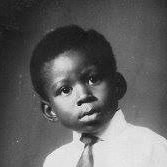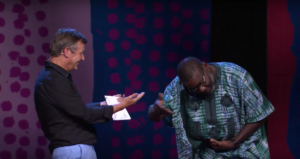Well, there it is. The cogent submission and guidelines for evolving from a country to a nation in less than 500 words. Now understand that when this was written 36 years ago 75% of Nigerians living today had not been born. Fast forward to present times, we are still more country than the nation and it seems we are destined to remain so for a long time…unless. Enjoy
The distinction must be made between a country (such as ours) and a nation. While the former holds relevance largely as a geo-political reference point, the other constitutes a monolithic body of people marked by common descent, language, culture and/or historical tradition.
Lacking the conveniences of a common descent, language, or culture, Nigeria is nonetheless bound together by a strong historical tradition. Since 1914, when the Northern and Southern protectorates were amalgamated to form the geo-political entity subsequently known as Nigeria, the country has been groping in the dark, in search of nationhood.
As a country, she has succeeded, to some extent, in harnessing her men and material to grow without much development, into a country with substantial influence on the African continent. But to build a nation entails more than just harnessing men and material within a geo-political unit to reflect economic growth.
It stresses, more importantly, evolving towards a uni-directional goal, to which her men and material are channelled. It is the failure to evolve a set of nationalistic ethos and goals that have hindered Nigeria’s march to nationhood. To be clear, Nigeria possesses the men and material to build a strong and virile nation, but the exemplary leadership required to channel them purposefully has been visibly lacking. In the pre-independence days, a nationalist spirit clamouring for self-rule could be identified.
But since the attainment of her independence some twenty-four years ago, Nigeria’s political life has been characterised by mutual antagonism by the three major ethnic groups.
And in the distribution of political power and economic wealth, a predictable configuration has emerged. The North has tenaciously held on to political power, while the South has dominated the economic life. This schism, fuelled and sustained by sectional power-pockets, has made it near impossible for any leader of truly national stature to emerge.
It has also made nonsense of every political model employed by the country so far. Everywhere we look, we see square pegs in round holes, evidence of inveterate tribalism and xenophobia.
The task of nation-building is the responsibility of every citizen without exception. But added responsibility lies with the leadership, who must manifest radical nationalistic fervor in issuing out precepts and an unabashed display of patriotism in laying down examples.
The purpose of such leadership must be seen to be utilitarian without any religious, tribal, or sectional bias. But first, the vicious cycle of ethnicity must be dismantled. Secondly, the vision of the citizenry must be broadened to incorporate our national aspirations.
And lastly, the country must decide that it is ready for the sacrifices necessary for the transition into nationhood.
The Punch, Saturday, July 7, 1984



